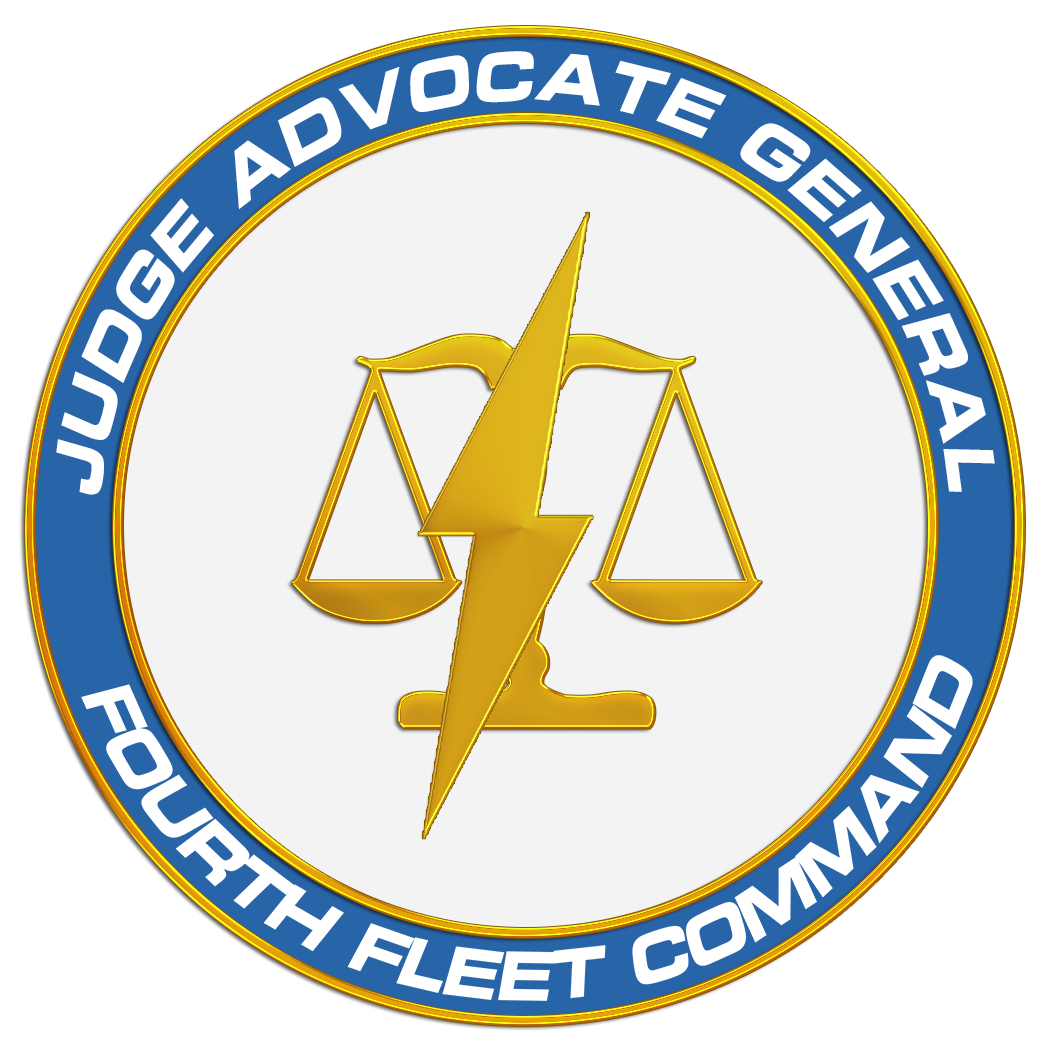Greetings, everyone. For my second JAG report, I want to go over some changes to the Bravo Fleet Judicial Code that Bravo Fleet Command recently voted to approve, which can be reviewed here. Some changes are things that were being worked on by Emily and myself before she stepped away from the role of JAG while others are those that I worked up more recently. Many of them are changes in the organization of existing content that does not change the JAG process: some formatting issues (mostly fixing indenting), some changes to terms of art for readability (looking at you, Order of Advanced Incarceration), and condensing the procedures for trials into a single section for less repetition. A change to the process is the removal of the step in the JAG process where the party that made the complaint is sent the charges for their review as no complaining party has any input into the charging decisions in any event.
However, there are two fairly major changes that deserve to be pointed out and the reasoning behind them explained:
The first of these is the elimination of the standing Appeals Panel. This was something Emily was taking the lead on with me in an advisory capacity when I came on board as Investigator. Having an ad hoc panel be assembled as needed made up of members of the BFC (with the exception of the BFCO and BFXO) who are expected to have a better understanding of the rules, policies, and process in any event, seems like it would provide better outcomes for the present. Having a deep understanding of the mechanisms of the JAG process is something that most members do not have, nor should they be expected to have. Essentially, it is my hope that the vast, overwhelming population of Bravo Fleet will never feel the need to actually dig deep into the Judicial Code. While I will always be looking to keep an eye on the needs of the fleet as it evolves, and as such would be open to a standing Appeals Panel at some point in the future, this is the best choice for the fleet at present. This change streamlines the process, reduces the burden on members to fill those roles, and ensures that the panel is better equipped to review any matters that could come before it while serving as a much more effective check on the power JAG.
The second change is a more fundamental one, and something that I felt very strongly about changing when I took over as JAG. As currently written, the Judicial Code requires that the entirety of Bravo Fleet Command be notified whenever a case advances to a formal investigation. The most important part of this revision to the Judicial Code is the elimination of that notification requirement. This is a critical change that seems, on its face, to reduce visibility and transparency in the JAG process, so I want to be sure to explain why this is so needed. As I alluded to in my first JAG report, the Judicial Code as a document is first and foremost a tool to protect members and restrain the power of what the governing bodies of the club can do. So in this matter the need for visibility of the process must be balanced against the impact on the member of that information being shared. At the point where an investigation, formal or otherwise, is being launched, there has been no proof or finding of guilt. In reality the process is still in the early fact finding stage. And yet, as it is written, the Judicial Code requires that the 20+ members of the BFC be notified that a member is the target of said investigation. Even if nothing comes of that investigation, the JAG office has potentially prejudiced the entire governing staff of the organization, top to bottom, against said member. Put simply, the BFC, and even the senior staff, has no compelling need to know that a trial is in progress before the outcome of said trial is presented. They have even less need to know that a member is merely the target of an investigation before charges are even brought. Notifying the BFC that an investigation is in progress offers no real oversight capacity to Bravo Fleet Command over the Judicial body. All that said notification can do is create a negative bias against members that may never be charged with any wrongdoing. Given that a member’s ability to advance within the organization is entirely determined by those 20+ people of the BFC, said risk of harm to the member is not an acceptable outcome. The benefit of notifying the members of Bravo Fleet Command of an investigation is not outweighed by the act of hanging a figurative scarlet letter around a member’s neck before due process can be exercised. JAG will still keep the BFCO apprised of ongoing JAG matters moving forward, but any member that is investigated will not have that matter broadcast to the Fleet’s entire leadership body.

 Bravo Fleet
Bravo Fleet









